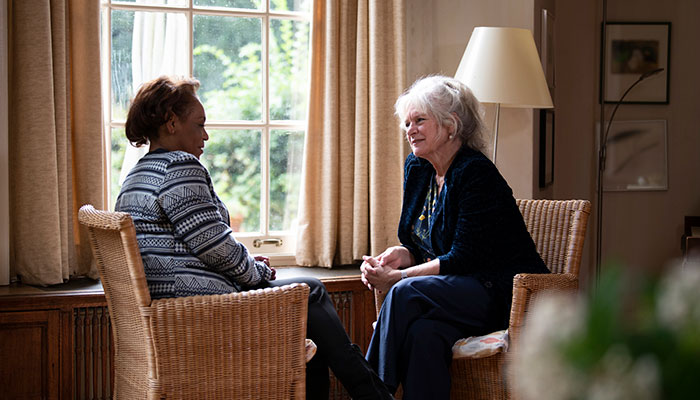Do You Need Cancer Recovery Support?
Hester Hill Schnipper, LICSW, OSW-C Program Manager Emeritus, Oncology, Social Work
APRIL 01, 2020
 The early months after finishing cancer treatment are often shockingly difficult. Most of us expect to quickly feel normal again. We anticipate having energy, appetite, enthusiasm for life, and hair. We may even optimistically assume that we will quickly return to our before-cancer lives. But this is rarely the case, and it may be depressing and scary to find that out. One problem can be that we attribute any lingering fatigue, GI upset, or vague ache or pain to a return of cancer.
The early months after finishing cancer treatment are often shockingly difficult. Most of us expect to quickly feel normal again. We anticipate having energy, appetite, enthusiasm for life, and hair. We may even optimistically assume that we will quickly return to our before-cancer lives. But this is rarely the case, and it may be depressing and scary to find that out. One problem can be that we attribute any lingering fatigue, GI upset, or vague ache or pain to a return of cancer.
Navigating the 'New Normal'
The phrase new normal is often used to describe the changes that fill life after cancer. Honestly I have never liked this phrase, but seem to be outvoted by others as it is quite commonly used. It is true that we gradually adapt to however our lives may be. Although I would never suggest that cancer is a blessing you may discover that you are making choices that create a more satisfying and happier life. You have also learned about courage and strength and endurance and can be authentically proud of what you have managed.
Here's a handy rule: it takes at least as long as the total duration of treatment to feel fully physically and emotionally well. This means that the recovery will take months; the curve is in the positive direction, but there will be good days and some that are harder. It is easy to worry that robust health will never return or that persistent fatigue means that cancer is still lurking. It is harder to be patient, to understand that your body needs time to heal, and to recognize that some adaptations may need to be made.
Remember, your family and friends may also expect you to quickly recover. They may presume that you can meet all your obligations immediately. There are a few people who finish treatment and never look back. These lucky people seem to pick up life exactly where they left it and to completely believe that cancer is behind them forever. Remember that they are the exceptions.
It is never possible to fully predict who will have more or less trouble with recovery. Many people do quite well a year after treatment. Others struggle for several years and may have to make permanent changes in their lives.
How Do You Know If You Need Cancer Recovery Help?
If you completed treatment more than a year ago and still struggle, you may need help. Here are other indications that you may need extra support:
- You are having trouble managing your feelings and are often in tears, angry, or anxious.
- The people around you comment on your moods and express concern.
- Your important relationships are strained. This includes relationships with your spouse or partner, children, parents, and close friends.
- You are having difficulty sleeping many nights. Especially if you go to sleep, but then awaken in the very early hours and cannot get back to sleep.
- Your work life is not going well. Perhaps you can't concentrate, meet deadlines, or focus as you could in the past.
- Your energy level continues to be low, and you can't exercise or complete a day's tasks as you have in the past.
If you see yourself in this list, it is time to seek help. You can begin by asking your doctor for a referral to a therapist who is experienced working with cancer patients and survivors. You can also ask your cancer buddies if they know someone good. At BIDMC, you can consult with an oncology social worker who can either meet with you or refer you to someone in your community.
Remember that acknowledging and asking for help is a sign of strength and respect for yourself and your needs.
